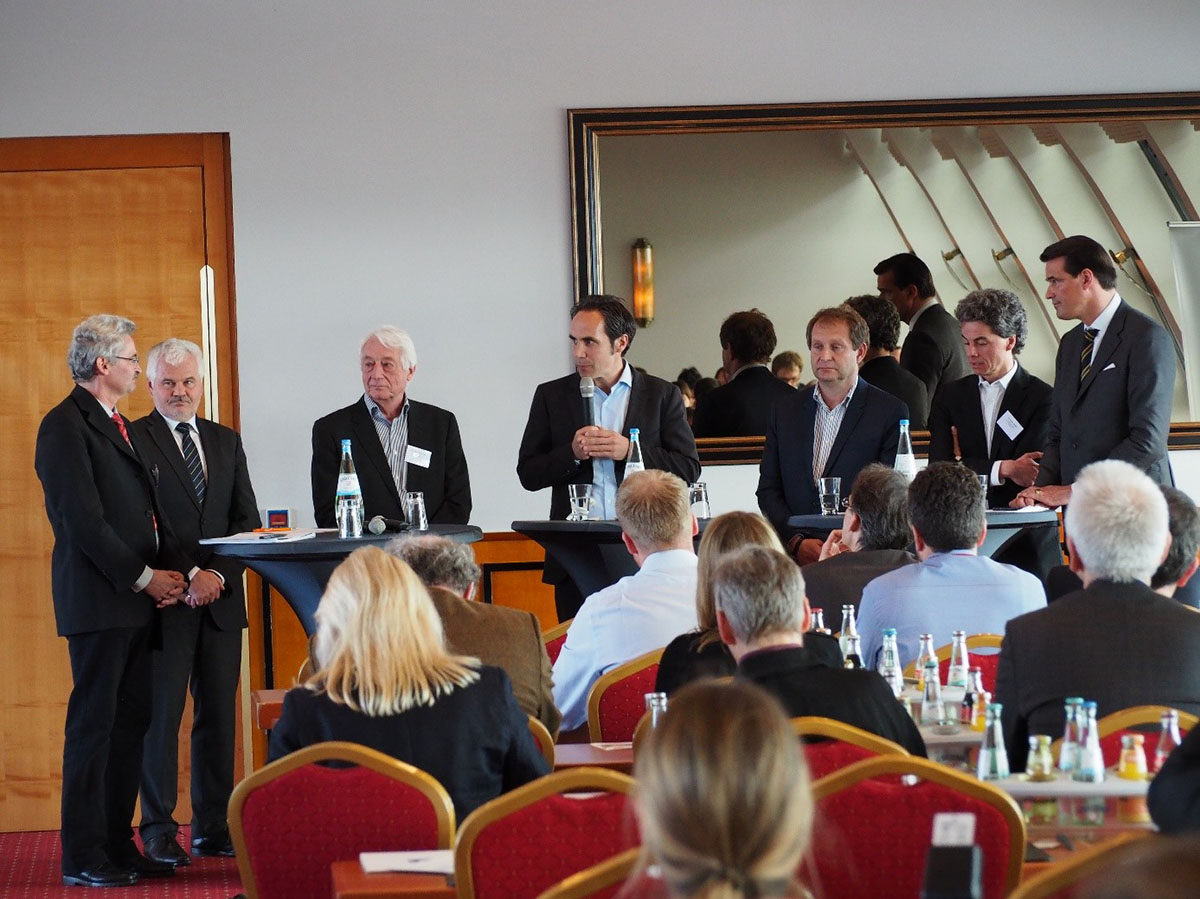On the 3rd of April 2017, an expert conference was held in Hamburg with around 170 experts on renewable energies in large-scale district heating systems, organized by the SDHp2m partners Hamburg Institut and AGFW. Strategies and realized best-practice-examples from international and national pioneer cities showed how the transition of urban heat supply towards renewable energies succeeds and which important role district heating can play.
The presentation by Wouter Verhoeven, Warmtebedrijf Rotterdam impressed the participants by the consequent expansion of the district heating network and the integration of industrial waste heat, mainly from the large port areas of the city. Also the actions for the involvement and information of the citizens in the implementation phase of the projects were really convincing: making the inauguration of the new pipeline a public festival, organizing architectural competitions for substations or offering special learning programs at public schools.Dr. Werner Prutsch, head of the environmental administration in Graz, captivated the audience with a very dedicated lecture on district heating as the key to the urban energy transition in Graz. The city had to act a few years ago, when it became clear that the coal-fired power plant would soon no longer be available. The administration in Graz, various stakeholders in the city and Styria have not only developed a coherent concept for the transformation of the supply with renewable energies, but have also implemented the first projects. One of the most ambitious projects is certainly ‘Big Solar Graz’, where a solar thermal system with a collector field of 450 000 m² and a seasonal storage with 1 800 000 m³ will be realized.
Elisabeth Undén, assistant deputy mayor and chairman of Göteborg Energi brought the topic to the point with its core principle: ‘Use the energy that you have’. 90% of all households in Göteborg are connected to district heating, which is already fossil-free. In her lecture, the main focus was on saving potential and buildings as day-to-day storage.
The final panel discussion with Jens Kerstan, Senator for Environment and Energy in Hamburg, Werner Lutsch, Managing Director AGFW and President of Euroheat and Power, Dr. Werner Prutsch, Pieter Wasmuth from Vattenfall Wärme Hamburg GmbH and the SDHp2m partners Per Alex Sorensen from PlanEnergi and Christian Maaß from Hamburg Institut was moderated by Stefan Schurig of the Word Future Council. Main outcome of the discussion: consistent political guidelines and above all also trade can make renewable district heating a decisive driver of the energy transition.
Simona Weisleder
